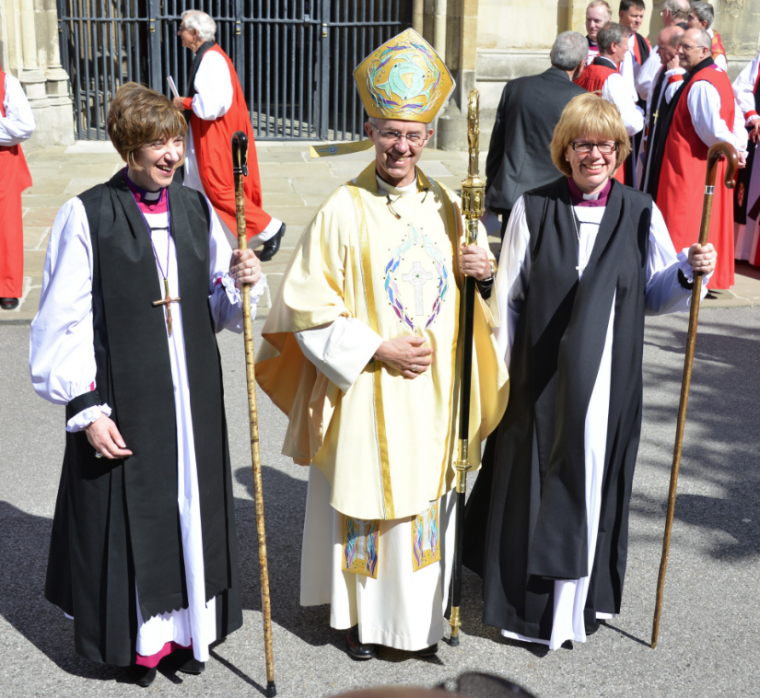Sarah Mullally, like Justin Welby, is no theologian. The CofE is losing its nerve
What qualities should we look for in a bishop? The sorry mess that has been made of the George Bell affair suggests administrative competence is essential. As the Carlile report revealed, not much of that was on display in handling the allegations against a giant of the twentieth century Church of England.
But questions need to be asked about whether competence in business or in another profession means similar success in the ordained ministry. It could be argued that the appointments of Justin Welby, hailed for his experience in the oil industry but a bishop for less than two years when he was translated to Canterbury, and of Sarah Mullally, a former chief nursing officer who has been a suffragan bishop for two years before her translation to London, represent a failure of nerve in the CofE. It is no longer enough to have wide experience of ordained ministry before being appointed a bishop; you have to have a CV that includes success in other occupations.

Such appointments may stir up attention in the secular media but they overlook the fact that the ministry, like other professions, requires not just a body of knowledge but formation in a particular ethos that takes time. Sarah Mullally may be right to draw attention to the similarities between nursing and being a priest or bishop but there are also differences. In particular there is the teaching role that is at the centre of the bishop's ministry.
Justin Welby gets mixed reports about how well he is performing as Archbishop of Canterbury. Critics say his crisp business style does not always come over well or obtain the results he intends. Brusqueness can easily turn to bad temper and this alienates people. One bishop told journalist Stephen Bates, 'I haven't been spoken to like that since I was at school'.
While the Archbishop must be given credit for being savvy about Public Relations his preaching and ability to reflect theologically are less than impressive. Martyn Percy, the Dean of Christ Church, who has criticised Welby's attempt to get the church to adopt secular management styles, told Bates that Welby 'has got an instinctive grasp of what needs to be done but pragmatic fixes have their limits. If you don't do the theology you can't go forward, you just go around in circles'.
Sarah Mullally's appointment is being criticised by those who feel that as a woman she cannot be a focus of unity in the church. Unfortunately the CofE is now so divided it is difficult for anyone to be a focus for unity. Even so it is sad that while a diocese with many traditionalists like London appears ready to accept a woman bishop, Sheffield was unable to accept Philip North.
More serious questions concern Mullally's theological expertise and ability to carry out a teaching role. We need to be cautious here. Bishops are not meant to function as academic theologians. Their task is to interpret the scriptures and tradition in ways that are meaningful today and to listen to what the Spirit is saying though the life of the church. Teaching requires listening and the bishop is well placed through numerous, diverse contacts to judge the mind of the Church.
Bishop Sarah has a post graduate degree from Heythrop and she has taught courses on ethics to students in the Diocese of Southwark. She may feel questions about her theological ability are unfair. The problem is that she joins a bench of bishops where theologians are in very short supply. Let us hope that this can be remedied soon when other episcopal appointments are made.
Paul Richardson is a former Anglican Bishop in Papua New Guinea, England and Australia.











